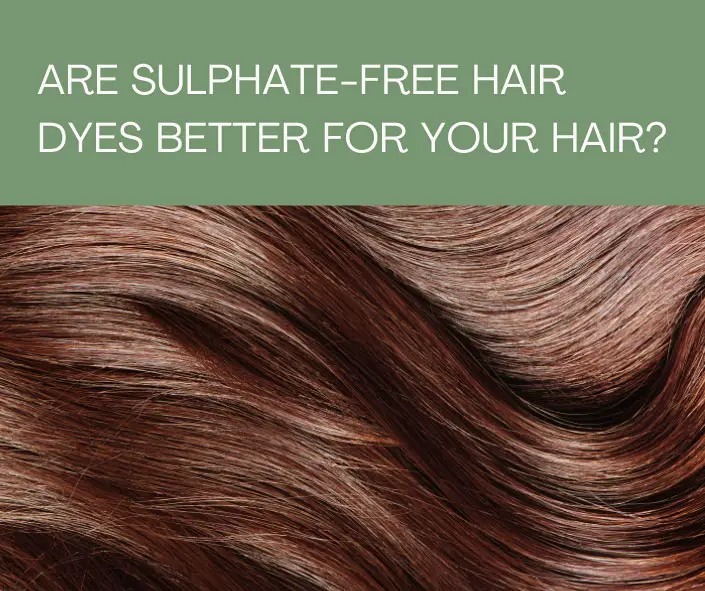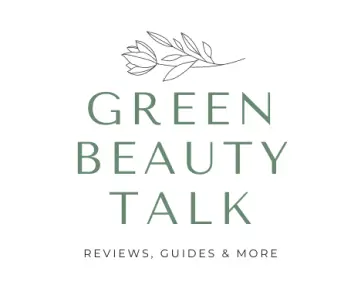
When considering whether sulfate-free hair dyes are better for your hair, it’s important to understand what sulfates actually do. Sulfates are detergents commonly found in many hair care products; they’re there to create lather and deeply cleanse the scalp and hair. However, these chemicals can also strip natural oils from your hair, potentially leading to dryness and irritation.
Switching to sulfate-free hair dye offers a gentler alternative that may reduce the risk of stripping away moisture and color from your locks. If you’ve invested in a vibrant new shade or have naturally dry, curly, or coarse hair, using a sulfate-free formula can help maintain the integrity of your color and the overall health of your strands.
Also, if you have sensitive skin or scalp conditions such as eczema or psoriasis, opting for sulfate-free options could prevent further aggravation. By reducing the harsh ingredients in contact with your scalp, you’re likely nurturing a healthier environment for hair growth while minimizing potential inflammation caused by stronger chemicals.
The harmful effects of sulphates on hair
How sulphates strip away natural oils
Sulphates are aggressive detergents found in many hair care products. They’re what make shampoos lather up, giving you that satisfying bubbly cleanse. But this vigorous cleaning action comes with a downside. Sulphates can remove much more than just the day’s dirt and odors; they can strip your hair of its essential natural oils. These oils are your scalp’s way of keeping hair healthy, moisturized, and protected.
Natural Oil Loss: When these vital oils are washed away, your strands may become dry and brittle. It’s like taking a sponge to a polished wood surface—the more you scrub, the duller it looks.
Color Fading: For those who color their hair, sulphate-laden shampoos can cause the dye to leach out more quickly. This means frequent touch-ups and potential over-processing.
Regular use of strong sulphate formulas might lead not only to lackluster locks but also to weakened strands prone to breakage.
Sulphates can cause scalp irritation and dryness
The same properties that enable sulphates to clean effectively can irritate your scalp. You’ve likely experienced that tight feeling after using a strong shampoo – often due to the moisture being sapped right from your skin.
Sensitive Scalps Beware: Individuals with sensitive scalps or conditions like eczema or psoriasis might find their symptoms worsened by sulphates.
Itchy Aftermath: Even if you don’t have an existing condition, exposure to these chemicals could leave you with an itchy or flaky scalp.
Here’s what typically happens: Sulphates disrupt the natural balance of oil production on your scalp. Your skin might overcompensate by producing extra sebum, which leads to greasiness, or under-produce, which results in dry flakes everywhere—neither scenario is ideal for maintaining healthy hair or comfort levels!
By understanding how harsh these substances can be on your strands and scalp, choosing gentler alternatives becomes a clear path towards healthier hair days ahead!
Benefits of sulphate-free hair dyes
Gentle on the hair and scalp
Switching to sulphate-free hair dye can be a game-changer for those who frequently color their hair. Sulphates, commonly found in many traditional hair dyes, are detergents that can strip away natural oils from your strands and scalp. This harsh cleansing action often leads to irritation and dryness. In contrast, sulphate-free formulas tend to use milder ingredients that clean without causing unnecessary stress to your tresses.
- Less irritation during and after coloring
- Reduced risk of developing scalp inflammation
- Minimized color fading for longer-lasting vibrancy
- Sulphate-free options provide a more soothing experience, making them ideal for regular use especially if you’re someone with delicate skin or prone to allergic reactions.
Retains natural moisture and oils
Hair dyed using sulphate-containing products might initially look vibrant but become dull over time due to moisture loss. Sulphates remove not only dirt but also essential lipids from the hair cuticle.
By opting for a sulphate-free dye, you’re allowing your hair to maintain its natural hydration levels, which is crucial for healthy-looking locks.
- Promotes shine by preserving the hair’s own moisturizing agents
- Helps maintain elasticity, reducing breakage during styling
- Extends the life of colored hair by keeping it hydrated
- Adopting a gentler dye preserves not just color but also the condition of your hair, ensuring it stays soft and lustrous.
Suitable for sensitive skin
For individuals with sensitive skin or conditions like eczema or psoriasis, colouring their hair can be daunting. The presence of harsh chemicals such as sulphates in dyes may trigger uncomfortable reactions. Fortunately, there’s a kinder alternative:
- Fewer instances of itchiness post-application
- A decrease in redness or swelling around the scalp area
These gentle formulas help avoid exacerbating skin issues providing peace of mind along with beautiful hues. With an array of shades available it’s easier than ever before to find a non-irritating color solution tailored just right for sensitive individuals.
Understanding sulphate-free hair dyes
When you’re navigating the complex world of hair care, understanding what goes into the products you use is key. Sulphate-free hair dyes are a popular choice for those looking to maintain vibrant color while keeping their hair health in check. Let’s delve into what makes these dyes different and why they might be a better option for your locks.
Ingredients to look for in sulphate-free hair dyes
Sulphates, known for their deep cleaning properties, can also strip natural oils from your hair leading to dryness and damage. In contrast, sulphate-free hair dyes contain gentler ingredients that aim to preserve your hair’s natural moisture while still providing effective coloration. Here’s what you should keep an eye out for:
- Amino acids: These help nourish your scalp and strengthen your hair.
- Natural oils: Ingredients like argan oil or coconut oil add moisture and shine.
- Plant-based extracts: Henna or chamomile can offer gentle coloring effects.
These components not only contribute to a healthier scalp environment but also minimize potential irritation that harsh chemicals might cause.
Different types of sulphate-free hair dyes available
You’ve got options when it comes to choosing a sulphate-free dye that suits your needs:
- Permanent Hair Dyes: Without ammonia or peroxide, these provide long-lasting color with less damage.
- Semi-permanent Hair Dyes: They gradually fade over time but are ideal for trying out new shades without commitment.
- Temporary Hair Colors: Perfect for one-time events or adding highlights, these wash out after just one or two shampoos.
Exploring the variety of sulphate-free options can lead you to find the perfect match for both your aesthetic preferences and the health of your tresses. Whether it’s a bold change or subtle enhancement you’re after, rest assured there’s a product out there tailored just right for you—minus the harsh chemicals!
Myth vs reality: Are sulphate-free hair dyes less effective?
Dispelling the myth of sulphate-free hair dyes being less effective
Many believe that without sulphates, hair dye can’t penetrate the hair shaft as effectively or last as long. Let’s unpack this misconception. Sulphates are detergents known for their deep-cleaning properties; however, they aren’t responsible for the pigment that colors your hair. Sulphate-free formulas often contain alternative ingredients designed to help the color adhere to your strands just as well without stripping away natural oils.
- Gentler on Scalp: For those with sensitive skin or conditions like eczema, a sulphate-free dye can be much kinder.
- Color Retention: Some find that these formulas actually help maintain their color longer because they’re not washing away essential moisture.
- Innovative Ingredients: Manufacturers are turning to natural oils and extracts which can boost shine and health alongside coloring.
These points suggest that while sulphates have their place in certain products, their absence in hair dye does not equate to ineffectiveness.
Real-life experiences of people using sulphate-free hair dyes
When it comes to actual user experiences, there’s quite a range of feedback on the performance of sulphate-free options. Some users rave about how gentle these dyes are on their scalp and how vibrant and long-lasting the color remains. Others may notice no significant difference between traditional and sulphate-free versions when it comes to application and results.
- A hairstylist reported her clients with colored locks saw fewer fade sessions after switching.
- Individuals with curly or dry hair types shared stories online about improved texture and reduced frizz post-dyeing.
However, it’s crucial you do your research:
- Check out reviews on different brands before making a purchase.
- Look into personal testimonials regarding specific shades since some colors might perform better than others in a sulphate-free formula.
- By considering real-world evidence from people who’ve used these products, you gain valuable insight into what you might expect from going sulfate-free with your next color session.
Personal Considerations
When choosing a hair dye, consider your personal needs:
- If you have sensitive skin or allergy concerns, sulfate-free options could be more compatible with your condition.
- For color-treated hair seeking longevity in vibrancy, these dyes might minimize fading.
Professional Advice
Seeking professional advice can also guide your choice:
- Discuss with a hairstylist about what ingredients work best for your specific hair type.
- A dermatologist can provide insights if you’re dealing with scalp issues.
Ultimately, it’s about finding a balance between effective coloring results and maintaining healthy locks. While sulfate-free options are touted for their milder formulation, effectiveness varies by product and individual use.
By carefully considering all aspects mentioned above, you’re well-equipped to choose a product that aligns with both your aesthetic desires and hair care needs. Experiment wisely and monitor how your hair responds; this will be pivotal in finding your ideal match in the vast world of hair color products.

Petra Nakashian (previously Kravos) is a dedicated natural health and beauty blogger, driven by the loss of her parents to cancer, which led her to meticulously research beauty product ingredients. With over 10 years of experience, her in-depth knowledge has made her a trusted expert in the field. Founder of Be Healthy Now and Green Beauty Talk, Petra recently expanded her expertise with Beauty Insights Hub, exploring a wider range of beauty treatments. Committed to transparency and honesty, her work is a vital resource for navigating the complex world of beauty.
